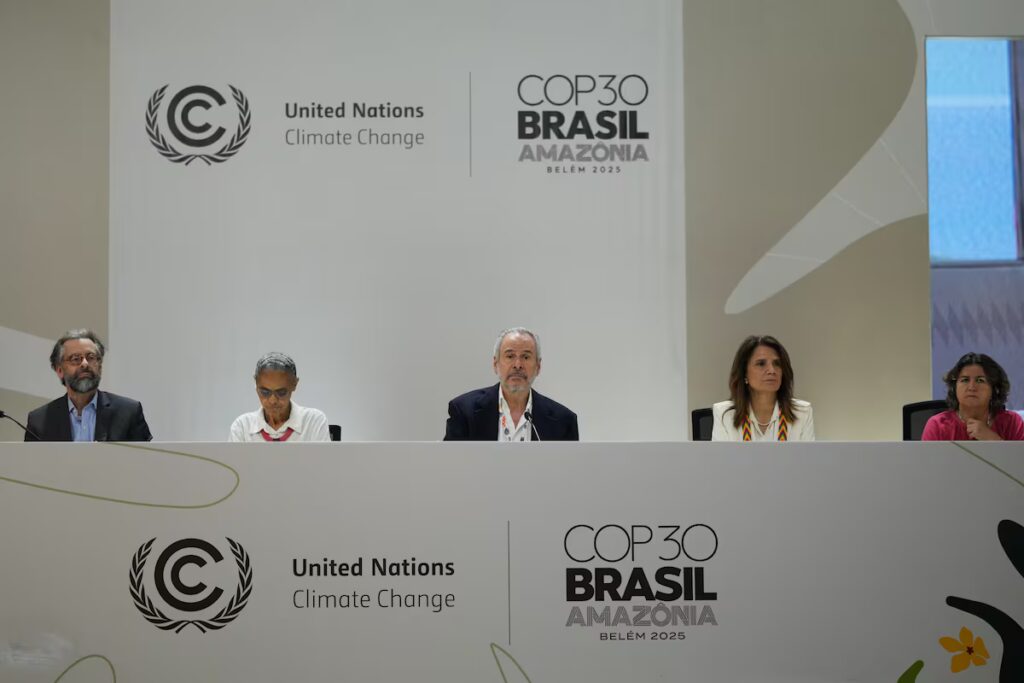
The COP30 climate summit ended on Saturday in Belém without a final statement mentioning fossil fuels, much less the need to activate a roadmap to abandon them. Science has been unanimous and clear for years: the climate crisis we are suffering is due to greenhouse gas emissions and these are caused by the combustion of fossil fuels. Three decades of environmental summits since the adoption of the United Nations Framework Convention on Climate Change in 1992 have always focused on mitigating emissions and not on adapting to the progressive abandonment of their main causes: oil, gas and coal. Of the 30 summits held, only the final agreement reached in Dubai two years ago with great effort explicitly mentions fossil fuels and the need for an energy transition that leaves them behind. That’s why it was hailed as a historic agreement, impossible to repeat last year in Azerbaijan and now in Brazil.
It was another missed opportunity in the fight against global warming, when 2023, 2024 and 2025 are the three hottest years on record and CO₂ emissions from these fuels and cement production around the world grew by 9.8% in a decade. Just 10 years have passed since the crucial Paris Agreement, which established that, as far as possible, temperatures should not increase by 1.5 degrees above pre-industrial levels. This limit was reached already in 2024 and it is inevitable that it will be exceeded permanently in the next decade.
The Belém summit came at the worst time since 2015 for the fight against the climate and the advance of denialist populism around the world, with Donald Trump at the helm. COP30 therefore opened with little prospect of progress. Yet, from day one and at the initiative of President Luiz Inácio Lula da Silva, the host president, fossil fuels unexpectedly became the focus of debates. In the final part of the meeting, 40 countries – including Spain, one of the initiators – signed a letter asking the COP Presidency to include the need for such a roadmap in the final declaration. This could not be due to pressure from 80 of the 195 participants, led by the petrostates. Overall, this centrality in the debate demonstrates that the defense of the energy transition is still alive and that the commitment to multilateralism is maintained at the most critical moment of the fight against the climate and when its rivals are the strongest.
The Paris Agreement set a series of needs and objectives because politicians believed what scientists said. Since then, evidence has accumulated that warming is progressively accelerating and that extreme weather events will become increasingly violent and abundant. Phenomena that result in hundreds of thousands of deaths and hundreds of billions in economic losses. Both far-right denialism and the setback in environmental policies – in which the EU seems to have stabilized – represent a danger. Not only to avoid dealing with the environmental emergency that the planet is experiencing, but also because they break the social consensus according to which this emergency – regardless of one’s ideology – concerns us all.





